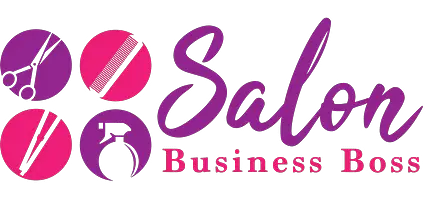Starting a hair extension business can be a lucrative venture for entrepreneurs passionate about the beauty industry. However, like any business, it requires careful planning and investment. One of the primary considerations is the startup cost, which can range from a few thousand to tens of thousands of dollars.
A startup cost for a hair extension business is about $15,000 to $25,000. It includes market research, legal compliance, inventory, website development, marketing, salon setup, employee training, and miscellaneous expenses. Proper planning is key to success in this dynamic industry.
1. Market Research and Business Planning:
Before embarking on the journey of starting a hair extension business, conducting comprehensive market research is a foundational step. Thorough market research provides invaluable insights into the target market’s demands, trends, and preferences, allowing entrepreneurs to make informed decisions and develop effective business strategies.
Market research for a hair extension business involves analyzing the demand for hair extensions in the target demographic. Understanding the potential customer base and identifying their preferences can help in tailoring the product offerings to meet their needs effectively. Additionally, it is essential to assess the competitive landscape to determine the key players, their strengths, and weaknesses.
Entrepreneurs can conduct market research independently using various online tools, surveys, and data analysis. Alternatively, they may choose to hire a market research firm to conduct a more in-depth analysis, which could cost between $1,000 to $2,000. Investing in business planning services and software, which usually amount to $500 to $1,000, can help structure and organize the business strategies and financial projections.
Allocating sufficient funds for market research and business planning is vital for the business’s success. Well-informed decisions made during the initial stages of the venture can lead to improved customer satisfaction, increased profitability, and a competitive edge in the market.
2. Legal and Regulatory Compliance:
Ensuring legal and regulatory compliance is crucial for operating a hair extension business without facing legal repercussions. The process involves registering the business with the appropriate government authorities and obtaining any necessary licenses and permits.
The costs associated with business registration and compliance can vary depending on the location and the type of business entity chosen. For instance, forming a sole proprietorship might be less expensive compared to establishing a limited liability company (LLC). The expenses related to business registration can range from $500 to $2,000.
Engaging the services of an attorney to handle legal documentation and ensure compliance might incur additional costs, typically around $1,000 to $3,000. While this might seem like a significant expense, it is a wise investment to prevent legal issues down the road.
By complying with all the necessary regulations and obtaining the required permits, entrepreneurs can operate their hair extension business with confidence, building a trustworthy reputation among customers and stakeholders. Legal compliance also demonstrates professionalism and integrity, which can be crucial for attracting potential partners and investors in the future.
3. Inventory and Product Sourcing:
As the heart of a hair extension business, inventory plays a pivotal role in attracting and retaining customers. Offering a diverse range of high-quality hair extensions is essential to cater to different customer preferences and demands. Entrepreneurs have the option to choose between natural and synthetic hair extensions, with natural extensions typically commanding higher prices due to their superior quality and durability.
The cost of acquiring inventory can vary based on factors such as the type of hair extensions, the quality of the hair, and the quantity ordered. Investing in premium quality hair extensions may yield higher customer satisfaction and lead to more repeat business. Startup costs for inventory can range from $5,000 to $10,000, depending on the scale of the business and the variety of extensions offered.
Entrepreneurs must strike a balance between offering a diverse inventory and managing initial expenses. Careful research and understanding of the target market’s preferences can help optimize inventory investments, ensuring that the product range aligns with customer expectations and budget.
4. E-Commerce Website Development:

In today’s digital landscape, an e-commerce website is a non-negotiable asset for any hair extension business looking to thrive. Website development costs can vary depending on the scope and complexity of the site. On average, entrepreneurs can expect to allocate between $2,000 to $5,000 for website development.
The cost of website development typically includes web design, where the appearance and user interface of the site are crafted to reflect the brand’s identity and offer a seamless shopping experience. It also covers hosting services to ensure the website is accessible to customers at all times.
Domain registration is essential for securing a unique web address, while payment gateway integration enables secure and convenient online transactions. These features are vital for building customer trust and confidence in the brand.
A well-designed e-commerce website not only enhances the brand’s online presence but also allows customers to browse products, make purchases, and access customer support with ease. With a user-friendly website, the hair extension business can reach a wider audience and boost sales, making the investment in website development a worthwhile endeavor.
Read more about: Highest Revenue-Generating Services For Your Salon
5. Marketing and Branding:
In the highly competitive beauty industry, effective marketing and branding strategies are key differentiators for a hair extension business. A well-thought-out marketing plan helps create brand awareness, attract potential customers, and drive sales. Allocating a budget for marketing initiatives is crucial for reaching the target audience and maximizing business exposure.
Social media advertising has become a powerful tool for businesses to connect with their target market. Investing in targeted social media ads can help showcase the hair extension products to potential customers who have a genuine interest in such beauty products.
Influencer partnerships are another effective way to reach a broader audience. Collaborating with influencers or bloggers who have a significant following in the beauty and fashion niche can boost the brand’s credibility and exposure.
Search Engine Optimization (SEO) is essential for ensuring the hair extension business appears on the top search results of search engines like Google. Investing in SEO services or tools can help drive organic traffic to the e-commerce website and increase the chances of converting visitors into customers.
An initial marketing budget of $2,000 to $4,000 is a reasonable investment to launch the business successfully. As the business grows, entrepreneurs can adjust their marketing budget and strategies based on the performance of different marketing channels and campaigns.
6. Packaging and Labeling:
First impressions matter, and in the beauty industry, packaging plays a crucial role in capturing the attention of potential customers. Investing in attractive and branded packaging for hair extensions is essential to stand out in a crowded market and leave a lasting impression on customers.
The cost of designing and producing packaging, labels, and tags can range from $500 to $1,000, depending on the level of customization and the quantity produced. Custom packaging not only enhances the product’s perceived value but also serves as an extension of the brand identity, reinforcing brand recognition and loyalty.
When customers receive their hair extensions in well-designed packaging, it elevates their overall shopping experience and makes them feel like they are receiving a premium product. Eye-catching packaging also encourages customers to share their purchases on social media, leading to organic promotion and word-of-mouth referrals.
Setting the brand apart from competitors through unique packaging can help in building a loyal customer base. Additionally, incorporating sustainability in packaging materials can appeal to eco-conscious customers, adding another layer of brand value.
7. Salon Setup and Equipment:
For hair extension businesses planning to have a physical presence, creating an inviting and well-equipped salon space is essential to provide a pleasant experience for customers. The cost of salon setup can vary depending on factors such as the location, size of the salon, and the quality of equipment chosen.
Investing in suitable furniture, mirrors, styling chairs, and other essential salon equipment is necessary to ensure a comfortable and professional environment. The overall cost of salon setup typically ranges from $3,000 to $6,000.
Entrepreneurs should consider factors such as the layout and interior design of the salon to create a space that aligns with the brand’s image and appeals to the target market. High-quality furniture and equipment can enhance the salon’s ambiance and create a positive impression on customers, leading to increased satisfaction and customer loyalty.
Maintaining a well-organized and aesthetically pleasing salon not only enhances the overall customer experience but also improves the efficiency and productivity of the salon staff. A well-equipped salon can attract more customers and generate positive word-of-mouth referrals, contributing to the long-term success of the hair extension business.
8. Employee Training and Wages:
If the hair extension business plans to hire employees to assist with salon operations or customer service, allocating funds for their training and wages is a crucial consideration. Properly trained employees are essential for providing quality service and ensuring customer satisfaction.
The cost of training new employees can vary depending on the complexity and duration of the training program. On average, entrepreneurs can allocate around $500 to $1,000 per person for training.
Employees’ wages during the initial months of employment should be factored into the startup costs. The amount spent on wages will depend on the number of employees hired and the local labor rates. Allocating approximately $2,000 to $4,000 for employee wages during the initial months is a prudent estimate.
Investing in employee training and providing competitive wages can improve employee retention, enhance service quality, and foster a positive work culture. Satisfied and well-trained employees are more likely to be motivated and provide exceptional service, contributing to the overall success and reputation of the hair extension business.
9. Miscellaneous Expenses:

Startups often encounter unforeseen expenses during their early stages, making it essential to have a financial buffer to address unexpected costs. Setting aside a budget of around $1,000 to $2,000 for miscellaneous expenses provides the business with financial flexibility and mitigates potential disruptions to operations.
Miscellaneous expenses can include unexpected repairs, additional supplies, or unforeseen administrative costs. Having a contingency fund allows entrepreneurs to tackle unforeseen challenges without compromising on the business’s overall growth and development.
By planning for miscellaneous expenses, entrepreneurs can be better prepared to navigate the uncertainties that come with starting a new hair extension business. It also demonstrates prudent financial management and reflects a commitment to ensuring the business’s stability and resilience.
Read more about: Breaking Down the Expenses to Launch Your Own Salon
Conclusion
Starting a hair extension business requires a significant initial investment, with startup costs ranging from $15,000 to $25,000. However, careful planning, thorough market research, and strategic allocation of funds can significantly increase the chances of success. Entrepreneurs should consider the aforementioned detailed breakdown of startup costs while planning their hair extension business to ensure a smooth and profitable launch. With a solid foundation and a passion for the beauty industry, entrepreneurs can thrive in this exciting and dynamic market.
Frequently Asked Questions

1. Can I start with synthetic hair extensions to save costs?
While synthetic extensions are cheaper, investing in high-quality natural hair extensions can enhance customer satisfaction and loyalty.
2. What are the recommended marketing strategies?
Social media advertising, influencer partnerships, and SEO are effective marketing approaches for attracting customers.
3. Should I have a physical store or an online-only business?
Starting with an online store is cost-effective and allows you to reach a broader audience initially.
To learn more on how to start you own salon checkout my startup documents here.
Please note that the contents of this blog are for informational and entertainment purposes only and should not be construed as legal advice. Any action taken based on the information provided in this blog is solely at your own risk. Additionally, all images used in this blog are generated under the CC0 license of Creative Commons, which means they are free to use for any purpose without attribution.

About the author. Entrepreneur and Salon Business Fan.
Hi! I am Shawn and I am a happy individual who happens to be an entrepreneur. I have owned several types of businesses in my life from a coffee shop to an import and export business to an online review business plus a few more and now I create online salon business resources for those interested in starting new ventures. It’s demanding work but I love it. I do it for those passionate about their business and their goals. That’s why when I meet a salon business owner, I see myself. I know how hard the struggle is to retain clients, find good employees and keep the business growing all while trying to stay competitive.
That’s why I created Salon Business Boss: I want to help salon business owners like you build a thriving business that brings you endless joy and supports your ideal lifestyle.

